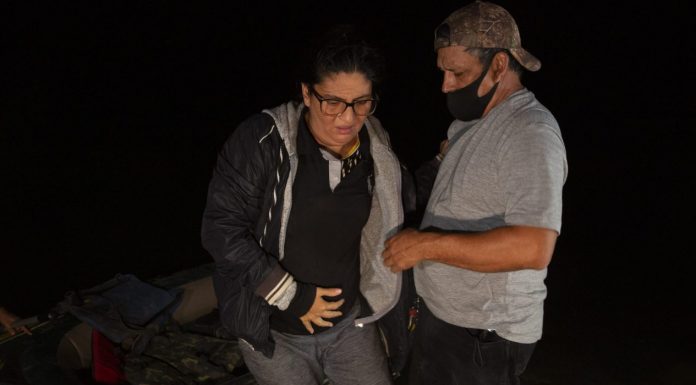(Headline USA) In the first legal setback of what is likely to be a familiar pattern echoing that of President Donald Trump’s first administration, a federal judge on Thursday temporarily blocked Trump’s executive order redefining birthright citizenship, calling it “blatantly unconstitutional” during the first hearing of a multi-state effort challenging the order.
U.S. District Judge John Coughenour repeatedly interrupted a Justice Department lawyer during arguments to ask how he could consider the order constitutional. When the attorney, Brett Shumate, said he’d like a chance to explain it in a full briefing, Coughenour told him the hearing was his chance.
Of the nearly 200 nations in the world, only about 30 recognize citizenship for any individual born on its soil, regardless of whether the person’s parents were citizens or were there legally.
The U.S. began doing so in 1898, when the U.S. Supreme Court first ruled that native-born children of Chinese immigrants were not subject to the Chinese Exclusion Act. However, it was only in 1924 when the U.S. began considering Native Americans born on its soil as citizens.
Although the century-old precedent—which cites the post-Civil War 14th Amendment as its basis—generally applies to those who already were legally residing in the U.S., Trump argued in his executive order this week that it did not include illegal immigrants and others who engage in “birth tourism” since they are not “subject to the jurisdiction” of American law.
Blue states, which have hoped to use the wave of millions of illegals during the Biden administration to achieve permanent political majorities as part of their so-called Great Replacement strategy, are now viciously lashing out.
The temporary restraining order sought by Arizona, Illinois, Oregon and Washington—all states with far-left governors and attorneys general—was the first to get a hearing before a judge and applies nationally.
The case is one of five lawfare challenges being brought by 22 states and a number of open-border activist groups across the country.
One of the lawsuits aimed at blocking the executive order includes the case of a pregnant woman, identified as “Carmen,” who is not a citizen but has lived in the United States for more than 15 years and has a pending visa application that could lead to permanent residency status.
“Stripping children of the ‘priceless treasure’ of citizenship is a grave injury,” the suit says. “It denies them the full membership in U.S. society to which they are entitled.”
Coughenour, an 84-year-old Ronald Reagan appointee, said the order “boggles the mind” while grilling DOJ attorneys.
“This is a blatantly unconstitutional order,” Coughenour told Shumate.
The judge said he’s been on the bench for more than four decades, and he couldn’t remember seeing another case where the action challenged so clearly violated the Constitution—even though “birthright citizenship” was not interpreted as such until decades after the passage of the 14th Amendment and Trump’s order was using the actual language of the amendment to make his argument against it.
Shumate said he respectfully disagreed and asked the judge for an opportunity to have a full briefing on the merits of the case, rather than have a 14-day restraining order issued blocking its implementation.
Arguing for the states, Washington Assistant Attorney General Lane Polozola labeled as “absurd” the government’s argument that the children of parents living in the country illegally were not “subject to the jurisdiction” of the United States.
“Are they not subject to the decisions of the immigration courts?” he asked. “Must they not follow the law while they are here?”
He also said the restraining order was warranted because, among other reasons, the executive order would immediately start requiring the states to spend millions to revamp health care and benefits systems to reconsider an applicant’s citizenship status.
“The executive order will impact hundreds of thousands of citizens nationwide who will lose their citizenship under this new rule,” Polozola said. “Births cannot be paused while the court considers this case.”
The Trump administration has said that the order, signed by the president on Inauguration Day, would only affect those born after Feb. 19, when it is slated to take effect. Therefore, it argued, temporary relief isn’t called for.
Washington Attorney General Nick Brown told reporters afterward he was not surprised that Coughenour had little patience with the Justice Department’s position, considering the 14th Amendment’s Citizenship Clause initially arose from one of the darkest chapters of American law—the Supreme Court’s 1857 Dred Scott decision—which held that African Americans, whether enslaved or free, were not entitled to citizenship.
“Babies are being born today, tomorrow, every day, all across this country, and so we had to act now,” Brown said.
“[T]he law of the land for generations [was] that you are an American citizen if you are born on American soil, period,” he added. “Nothing that the president can do will change that.”
Adapted from reporting by the Associated Press

